Photos And Flags: Azerbaijani Soldiers Tour Retaken District
In the darkness of a cold night shrouded by heavy fog, a military convoy carrying Azerbaijani flags slowly crossed the deserted centre of the town of Lachin southwest of Nagorno-Karabakh.
Baku's army entered Lachin in the early hours of Tuesday, marking the official handover of the last of three districts ceded by Armenia under a Moscow-brokered peace deal that ended weeks of fighting over the Karabakh enclave.
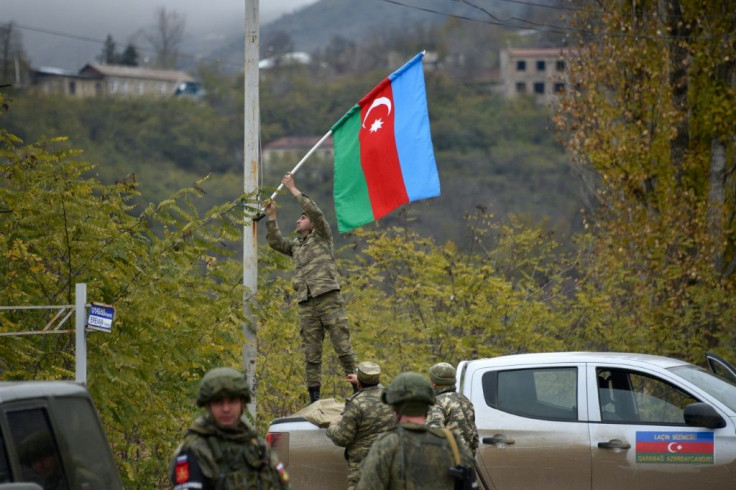
The ex-Soviet foes agreed to the ceasefire in early November after Baku reclaimed swathes of territory that for three decades were under Armenian control, including Lachin.
Accompanied by Russian peacekeepers deployed under the agreement, the Azerbaijani convoy journeyed through the district before the soldiers posed for photographs to celebrate their victory.
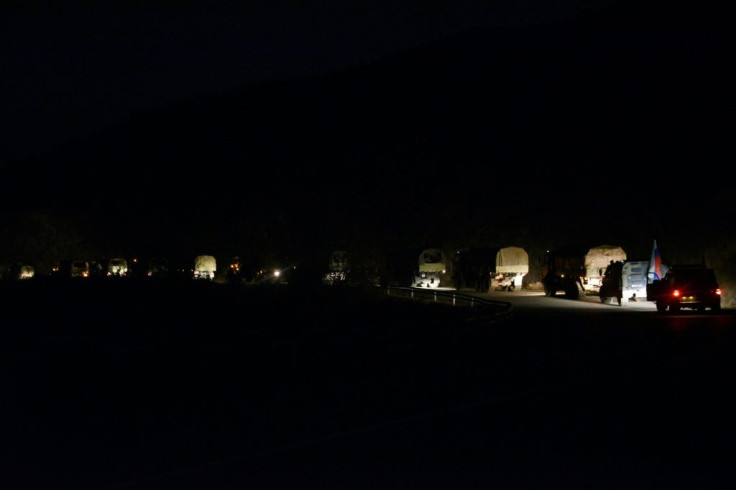
The trucks followed the route of the Lachin corridor -- a strategic highway linking Armenia with Nagorno-Karabakh -- to the Armenian border before turning off into Azerbaijani-held territory.
A jeep and a truck then returned to Lachin, where a dozen soldiers stood at attention as they took a photo outside a building housing the tax office.
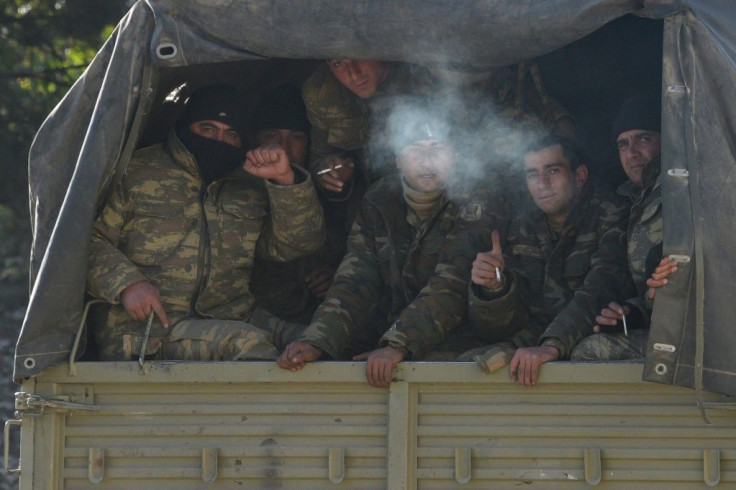
They gathered again the next morning, this time next to an Azerbaijani flag raised by the side of the road, to photograph and film another convoy carrying a senior officer.
With the arrival of the Azerbaijanis, most of Lachin's residents decided to leave. But those who stayed want to believe that better days will come.
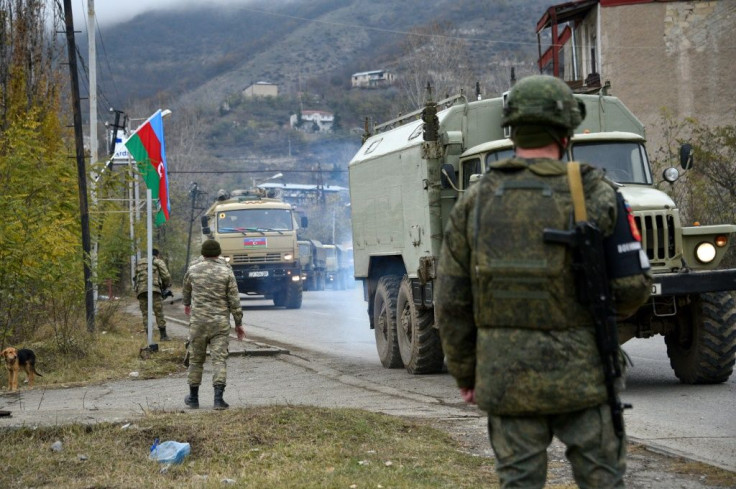
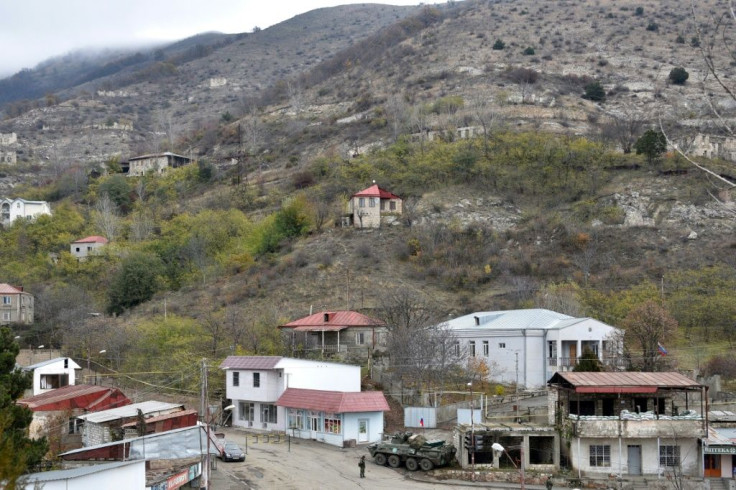
"We will stay here and we will live here," said Vashen Sargsyan, a 35-year-old farmer.
"Everything is fine, I have no fear... There are and there will be difficulties, but we will overcome them."
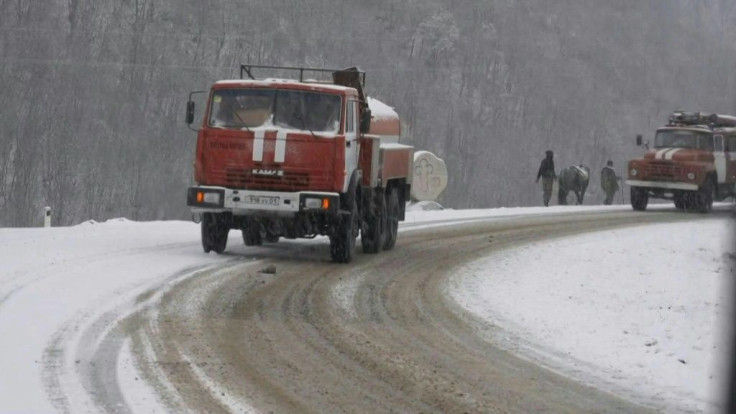
On Lachin's main square, the Russian peacekeepers helped move the traffic along or stopped it for the passage of Azerbaijani soldiers.
As a vehicle transporting the general commanding Russian forces passed by, heading towards the Armenian border, the soldiers stiffened in impeccable attention.
Around midday, a third convoy of 20 trucks carrying Azerbaijani troops also headed towards the border.
Near the border, the status of the village of Aghavno was uncertain.
Most residents left but nine families of the 50 or so who lived there decided to stay.
Among them is pregnant Narine Rasoyan and her five children. Her sister Karine -- a mother of two -- also remained.
"Nobody ever came to see us here to tell us to leave," 34-year-old Narine said, angry with authorities.
For her, the arrival of the Azerbaijanis "does not change anything".
Karine, 37, added: "We want to continue living here. If the authorities force us to leave then they should give us a house elsewhere."
In the village there has been no electricity, internet or phone connection for a few days.
The two sisters blame the Azerbaijanis, who Armenians refer to as Turks.





















